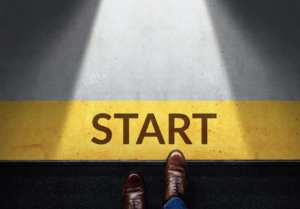Ads
Social media has been a significant part of the lives of many young people, including myself as a member of Generation Z. Born just before the introduction of Facebook, I have seen how social media has shaped my existence from a young age. It has become an integral part of how we connect, express ourselves, and stay informed about the world around us. Therefore, it is essential for policymakers like Anthony Albanese to prioritize listening to young people and working with them to create policies that benefit both current and future generations.
The recent proposal by the Albanese government to ban minors under 16 from using social media platforms has raised concerns among young people and advocates. While there is merit in ensuring that minors are protected from harmful content online, a blanket ban on social media may not be the most effective approach. Instead, it is crucial to educate young people on how to navigate social media responsibly and safely. By engaging in dialogue with young people and understanding their perspectives, policymakers can create more effective solutions that address the challenges of social media use among minors.
Research has shown that social media is a primary source of news for many teenagers and children, highlighting its importance in educating young people about current events and empowering them to engage with the world around them. By banning minors from using social media, we risk isolating them from valuable information and opportunities for learning and growth. Rather than prohibiting access, we should focus on promoting responsible use of social media and providing resources and support to help young people navigate the digital landscape.
It is also important to hold social media companies accountable for promoting a safe and healthy online environment. The concept of a “digital duty of care” is a step in the right direction, as it places the responsibility on these companies to safeguard the mental health of their users. However, more needs to be done to ensure that social media platforms prioritize the well-being of their users, particularly young people who may be more vulnerable to online harms. By working together with young people and advocates, policymakers can create policies that hold social media companies accountable and protect the rights and safety of all users.
While it is crucial to address the potential risks of social media, it is equally important to recognize the benefits that it offers to young people. Social media has become a powerful tool for activism, enabling young people to connect with others, raise awareness about pressing issues, and mobilize for positive change. By engaging with young activists and empowering them to use social media as a platform for advocacy and activism, we can harness the potential of social media to create a more just and equitable society.
As a youth activist myself, I have seen firsthand how social media can be used as a tool for education, mobilization, and advocacy. By creating age-appropriate content and engaging with young people on platforms like Instagram and TikTok, we can empower them to take action and make a difference in their communities. Social media has the potential to amplify the voices of young people and drive meaningful change, and policymakers should work to create policies that support and protect their ability to engage in online activism.
In conclusion, Anthony Albanese and other policymakers should prioritize listening to young people and involving them in the decision-making process when it comes to social media regulations. By working together with young people and advocates, we can create policies that balance the benefits and risks of social media use, promote responsible online behavior, and empower young people to use social media as a tool for positive change. It is essential to recognize the value of social media as a platform for education, activism, and connection, and to create policies that protect the rights and well-being of all users, especially young people. Let us work together to create a safe, respectful, and empowering online environment that benefits both current and future generations.






